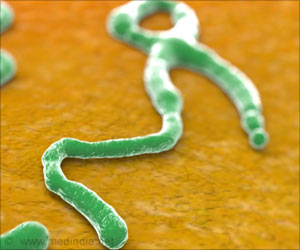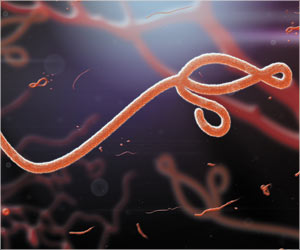Highlights
- Sporadic outbreaks of Ebola has claimed many lives which highlighted the need for a vaccine.
- The new experimental vaccine called rVSV-ZEBOV, has proven to be effective against the deadly virus.
The trial, conducted in Guinea and led by the World Health Organization, together with Guinea's Ministry of Health states that this vaccine is the first to prevent infection from one of the most lethal known pathogens.
"While these compelling results come too late for those who lost their lives during West Africa's Ebola epidemic, they show that when the next Ebola outbreak hits, we will not be defenceless," said Dr Marie-Paule Kieny, WHO's Assistant Director-General for Health Systems and Innovation, and the study's lead author.
Sporadic outbreaks of Ebola have been reported in Africa, ever since the virus was first identified in 1976. But the outbreak in 2013-2016 that hit West Africa, caused more than 11,300 deaths and this highlighted the need for a vaccine.
Ring Vaccination Approach
A new design called "ring vaccination" approach was used.
A total of 117 clusters or rings with an average of 80 people each, were identified.
All rings were offered the vaccine immediately and the trial was also opened to children older than 6 years.
The vaccine showed high efficacy among those vaccinated and those unvaccinated were indirectly protected from Ebola virus through the ring vaccination approach (so-called "herd immunity").
But the authors state that more research will be needed.
"Ebola left a devastating legacy in our country. We are proud that we have been able to contribute to developing a vaccine that will prevent other nations from enduring what we endured" said Dr KeÏta Sakoba, Coordinator of the Ebola Response and Director of the National Agency for Health Security in Guinea.
Assessing Safety of Vaccine
To assess safety, people who received the vaccine were observed for 30 minutes after vaccination, and at repeated home visits up to 12 weeks later.
Two types of symptoms were observed:
- Mild symptoms-Included headache, fatigue and muscle pain. Half of those vaccinated reported these symptoms but recovered within days without long-term effects.
- Two serious adverse events- One was a febrile reaction and the other was anaphylaxis. All recovered without any long term effects.
To assess the safety of the vaccine in children and other vulnerable populations such as people with HIV, additional studies are needed.
In case of Ebola flare-ups prior to approval, access to the vaccine is being made available through a procedure called "compassionate use" that enables use of the vaccine after informed consent. Additional studies are needed to provide more data on
The vaccine's manufacturer, Merck, Sharpe & Dohme, received Breakthrough Therapy Designation from the United States Food and Drug Administration and PRIME status from the European Medicines Agency, enabling faster regulatory review of the vaccine once it is submitted.
The results are published in The Lancet.
Reference
- Marie-Paule Kieny et al. Efficacy and effectiveness of an rVSV-vectored vaccine expressing Ebola surface glycoprotein: interim results from the Guinea ring vaccination cluster-randomised trial.The Lancet; (2016) DOI: http://dx.doi.org/10.1016/S0140-6736(15)61117-5
Source-Medindia













